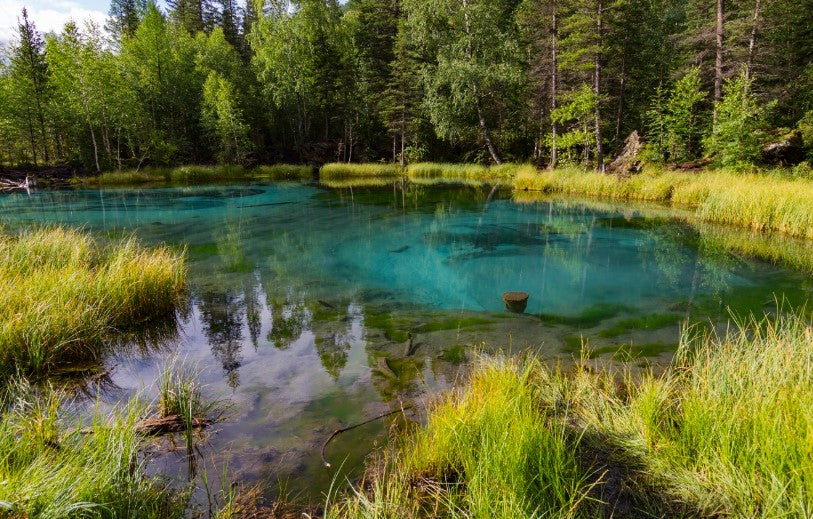
What You Need to Know About Pond Filtration Systems
A pond is a wonderful addition to any property. Whether residential, farm, or business, a properly maintained and well-kept pond can be a beautiful addition to your landscape. Therefore, as a pond owner, it is important to know how to properly maintain your pond and keep it the beautiful addition you planned for it to be. One of the most important ways you can maintain the health and beauty of your pond is by having the correct pond filtration system for your pond. Type of Filtration The first step to finding the correct filtration for your pond is to consider the type of filtration that you require. The three primary filtration types that you will need to consider when choosing a filtration system. Biological – Biological filters are the most important type of filtration for any pond of any size. They provide filtration of contaminated in the water caused by decaying leaves and debris, bacteria and nitrates. Biological filters are necessary for any pond that contains fish. Since debris can cause ammonia levels to rise in your pond, biological filtration is necessary to keep the ammonia levels stabilized to ensure the health of your fish. Biological filters also help eliminate the waste products and toxins produced by your fish and other inhabitants. Chemical – Chemical filtration is not necessary in all ponds; however, if you pond is prone to chemical contaminates, a chemical filter is essential. Organic and inorganic chemicals such as carbon and resin can be extremely harmful to the health of your pond. Chemical filters are also common if you have acquired a pond that has not been maintained properly and has excessively high ammonia levels or an abundance of bacteria and fish. Chemical filters can help bring your pond back to the proper chemical balance. Mechanical - Mechanical filters, also known as physical filters or pond skimmers, are the least expensive and most basic of filtration systems available for your pond. Pond filtration is necessary on some level to keep debris and algae under control. Mechanical filters typically skim or strain the debris from the pond keeping it clean and clear. Mechanical filters must be cleaned regularly to continue working effectively. Once you have determined the type of filtration you need you will be able to move on to acquiring the right equipment for your Pond Filtration System. Equipment Needed Generally, you will need some of the basic filtration equipment regardless of the type of filtration your pond requires. However, some equipment is specified to the type of filtration. The basic equipment that every filtration system will require includes: Filters – There are many types of filters. Once you have determined the type of filters you require (biological, chemical, or mechanical) you will be able to find the right filter. In some cases, you will want multiple or combination filters. Many owners prefer both mechanical and biological filters. You will also want to determine whether you wish to mount your filter in the water (submersible) or outside of the water (external). Pumps – To determine the best pump for your pond, you will want to know the ponds size by the number of gallons of water it contains. There are methods of calculating this if you do not already know the size of your pond. Once you know the size of your pond, you will have a better idea of the size of the pump your filtration system will require. Buying a pump that cannot handle the volume of water that needs to go through it will only cost you more money and headache. You will also want to consider the volume and pressure at which water pumps through the system. Low-pressure, high-volume is generally considered the best option for most ponds. Piping – Small ponds can usually handle a submersible pump and therefore piping is not typically necessary. However, if you have a larger pond and have a pump house, piping is an important piece of your filtration equipment. When determining the size of the piping your filtration system will require, you will need to consider how far away your pump house will be and how much water will be in the pipes at any given time. Generally, you will not want to use piping that is narrower than 2 inches. In addition, if you require a specialized filtration such as chemical filtration, you may require additional equipment or supplies for your filtration system. You may also be interested in specialized filtration devices such as a UV Filtration System, which exposes your algae to even more light to help kill more bacteria quickly. You will also want to consider the materials of your pond. For instance, if you have a plastic lined pond, you will have different filtration needs. Other Considerations You will need to consider a few other items before making your final decision on the type of equipment you need for your filtration system. These include. Size – The size of your pond is very important in determining the type of filtration system and equipment that you will need. Small ponds obviously require much less maintenance and equipment. However, large ponds will need heavier duty equipment that can handle the amount of water in the pond. Type of Fish – The type of fish that are in your pond is important to determining the type of filtration system you require. You have invested in the fish that inhabit your pond. You will want to ensure that you provide the best environment to protect your investment. Cost – Cost is the reality that every pond owner must consider. There is a large price range of equipment available for filtering your pond. When considering your ponds filtration system you will also want to consider your budget. However, in the end, a quality system will typically pay for itself by less maintenance, less loss, and the best results.